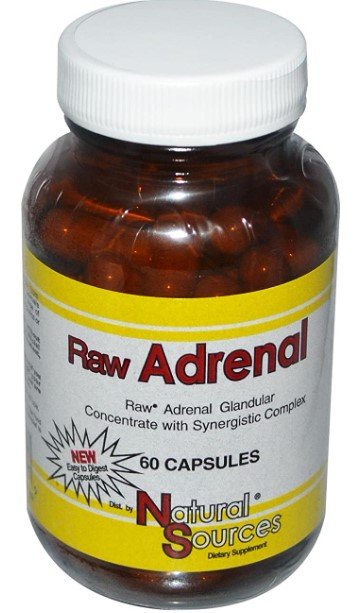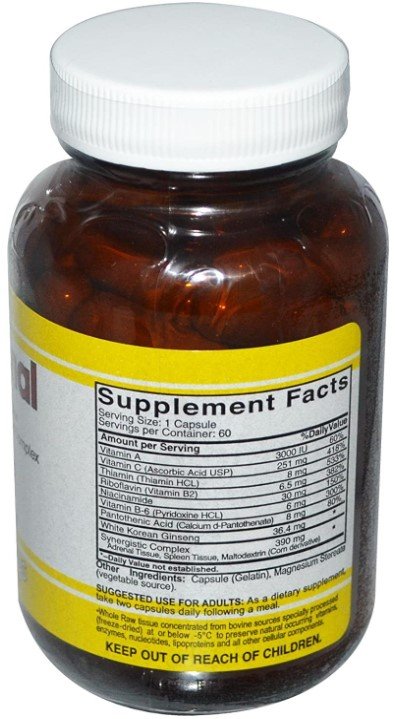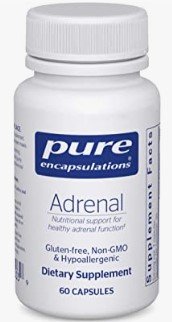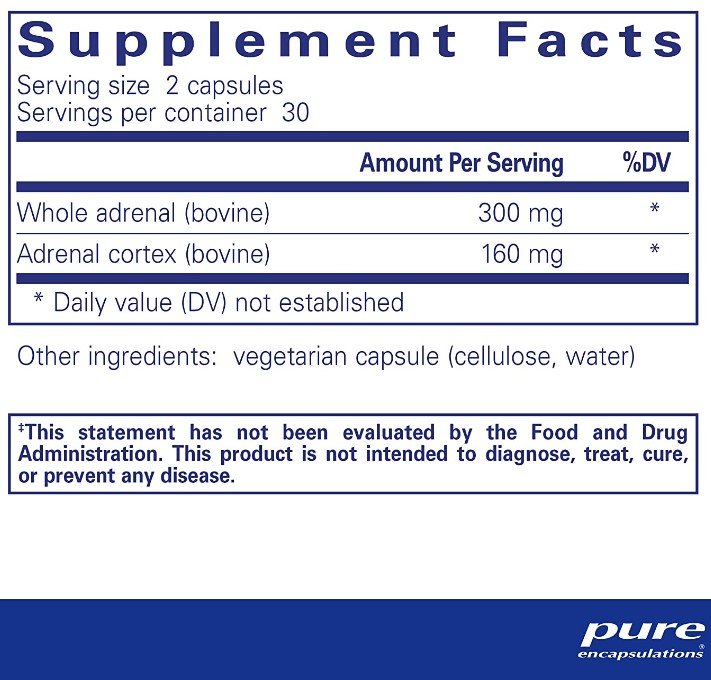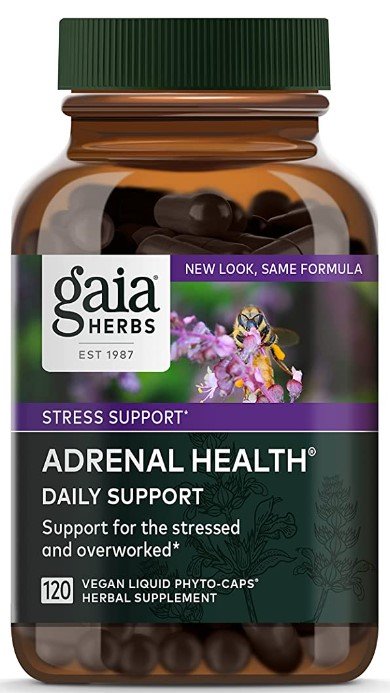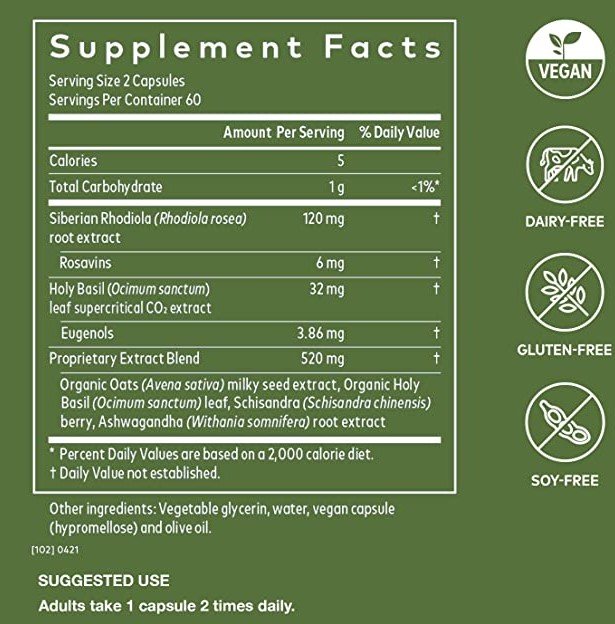Fatigue and Immunocompromise in Long COVID could be Adrenal Insufficiency
The adrenal glands play an important role in a healthy immune system, but COVID-19 and other illnesses can cause adrenal insufficiency, a medical condition caused by chronic physical or mental stress that occurs when the adrenal glands are over worked and can’t make enough cortisol to keep up with the demand. It can be difficult to diagnose and is often missed.
Updated January 7, 2025
The adrenal glands play an important role in a healthy immune system.
The adrenal glands are located just above the kidneys. They work with the hypothalamus and pituitary glands in the brain.
They help us fight off infection and illness, and they respond to stress so we can act quickly in the face of danger (known as the fight or flight response). On a daily basis they produce cortisol which controls blood pressure and helps break down fats, proteins, and carbohydrates.
You may become aware of adrenal insufficiency by exhaustion and pain on the side of the mid back (flank) near the kidneys.
Adrenal insufficiency may also be Addison’s disease
Adrenal insufficiency occurs when the adrenal glands don’t make enough of the hormone cortisol.
The primary kind is known as Addison’s disease. It is rare. It is when the adrenal glands don’t make enough of the hormones cortisol and aldosterone.
Secondary adrenal insufficiency occurs when the pituitary gland doesn’t make enough of the hormone ACTH. The adrenal glands then don’t make enough cortisol.
Mild symptoms may be seen only when a person is under physical stress.
You may need to take hormones to replace those that the adrenal glands are not making.
Adrenal insufficiency can be primary or secondary:
Primary adrenal insufficiency. This is known as Addison's disease. It occurs when the adrenal glands are damaged. They don’t make enough of the hormones cortisol and aldosterone. This condition is rare. It may occur at any age.
Secondary adrenal insufficiency. This starts when the pituitary gland doesn’t make enough of the hormone ACTH (adrenocorticotropin). As a result the adrenal glands don’t make enough cortisol.
What causes adrenal insufficiency?
Primary adrenal insufficiency is most often caused when your immune system attacks your healthy adrenal glands by mistake. Other causes may include:
COVID-19 and other viral infections
Autoimmune disease
Traumatic brain injury
Neuro COVID
Cancer
Fungal infections
Tuberculosis infection of the adrenal glands
Inherited disorders of the endocrine glands
Secondary adrenal insufficiency is caused by a lack of the hormone ACTH often related to long term use of oral steroids due to a health problem. For example, people with long COVID, asthma, or rheumatoid arthritis may need to take prednisone. Other causes may include:
Pituitary gland tumors or infection
Lack of blood flow and oxygen to the pituitary gland (consider post COVID vascular inflammation, microclots, and hypoxia)
Surgical removal of the pituitary gland
Radiation treatment of the pituitary gland
Surgical removal of parts of the hypothalamus
Bleeding in the pituitary
Genetic diseases that affect the way the pituitary gland develops or functions
If not treated, adrenal insufficiency may lead to:
Confusion
Pain in the lower back or legs
Severe abdominal pain, vomiting and diarrhea, leading to dehydration
Reduced consciousness or delirium
Low blood pressure
Extreme weakness
Drops in blood pressure
Kidney failure
Shock
How is adrenal insufficiency diagnosed?
This condition is usually referred to an endocrinologist. Tests that can diagnose adrenal insufficiency include:
Blood and urine tests to check levels of the adrenal hormones and ACTH.
Diagnostic imaging such as X-rays, ultrasound, or MRI.
Saliva (spit) test to check morning cortisol levels.
How is adrenal insufficiency treated?
Your healthcare provider will figure out the best treatment for you based on:
Your age, overall health, and past health
How sick you are
How well you can handle certain medicines, procedures, or therapies
How long the condition is expected to last
You may need to take hormone replacements if your adrenal glands are not making them, which is usually cortisol. If you have Addison's disease, you may also require aldosterone.
Addison's disease can be deadly. Treatment often starts with medicines called corticosteroids. You may have to take them for the rest of your life. You may also need to take other medicines (fludrocortisones). These can help keep your body's sodium and potassium levels normal.
Possible complications of adrenal insufficiency
Symptoms may occur suddenly in acute adrenal insufficiency, or Addisonian crisis when your body is stressed by illness, fever, surgery, or dehydration. You may also have a crisis if you stop taking your steroids or lower the amount of your steroids suddenly. The symptoms of an Addisonian crisis include the symptoms of adrenal insufficiency or Addison’s disease.
Natural supplements
Cortisol and hormone replacement prescriptions can be hard to tolerate. You may choose to use special supplements or vitamins for adrenal health instead. Here are some over the counter options available on Amazon that are rated highly by thousands of users. Remember to check with your doctor or pharmacist before starting or stopping medications or supplements.
COVID Care Group, LLC, (CCG) offers clinical education and healthcare resources, but is not a healthcare provider that renders medical diagnosis or treatment.
As an Amazon Associate, CCG earns from qualifying purchases.
Things you can do to help yourself
Minimizing physical & psychological stressors is essential in recovery from Long COVID.
Nutrition: Give your body the fuel it needs and avoid chemical additives.
Try to eat protein and fresh vitamin rich foods daily and avoid chemicals, preservatives, sugars, fast foods, prepared foods and high histamine foods.
Don’t skip meals. Your body needs protein , vitamin C, and vitamin D to heal from any injury or illness. A low histamine or low carbohydrate (sugar) diet is recommended by doctors treating Long COVID (PASC), and many people report a reduction in symptoms within 1-3 days of the diet change, including decreases in sneezing, itching or hives, irritable bowel syndrome, body pain, along with a reduction in swelling and inflammation.Hydration: A minimum of eight 8 oz glasses of plain water daily is recommended.
Avoid drinks with chemical additives. You can easily make a fresh electrolyte drink yourself by adding a dash of mineral rich Epsom salt and a piece a fruit like a raspberry for flavor instead of spending money on commercial drinks like Gatorade that contain chemicals and sit in plastic bottles for long periods of time. Remember that caffeine and alcohol have dehydrating effects.Sleep hygiene: Getting 7-9 hours of sleep so your body can repair itself.
You need at least 4 hours of uninterrupted sleep to get into the restorative phase of sleep.
Avoid stimulating activities after dinner like thrilling movies or books, arguments, negative news or frustrating stimuli.
If you wake up frequently or with a startle, you may be experiencing drops in your oxygen level, which signal your brain to release adrenaline to force you to take a breath. This could be a temporary inflammation issue or more enduring sleep apnea. Ask your doctor for a sleep study to evaluate your need for a CPAP or BiPAP, a machine that pushes air into your lungs when it senses an apneic episode (periods of not breathing).Stress management: Stress affects every component of your life.
The only thing you can control about stress is your reaction to it. Try to avoid or minimize your exposure to stressful situations: Turn off the news, make family visits that end unpleasantly short, wait for the morning to have intense discussions, let go of things that annoy you but don’t really matter in the big scheme of things, avoid intense conversations or entertainment in the evening.
Exercise within tolerance: Pace yourself and do not push your body to extremes in any way.
For some this may mean seated breathing exercises, walking to the mailbox. Rest when your body says to slow down. Gradually build on your activity endurance as your body cues you to progress. This can be hard to gauge, because when you feel good you naturally do more, but if you do too much you may experience symptom flare ups 1-3 days later as the post exertion inflammation builds. Some people describe this as post exertional malaise, others experience severe recovery set backs.
Breathwork: You can literally stop the fight or flight reaction by taking slow deep breaths.
Deep slow breathing shuts down the adrenaline flow, slows your heart rate, lowers your blood pressure and decreases stress related histamine release. When you do this, your blood reroutes back to your brain and nervous system to allow you to think clearly. It also allows your body to use its energy and oxygen to heal your inflamed nerves and organs.
Keep moving, keep breathing.
COVID Care Group, LLC, is not a “not for profit” organization. Donations, gifts & memberships are not tax-deductible.
ProMedView Nurse Coaches - We get it.
Our clinical experts advocate for those with Long COVID.
Individual coaching
Group Q&A sessions
Peer support groups
Educational webinars




